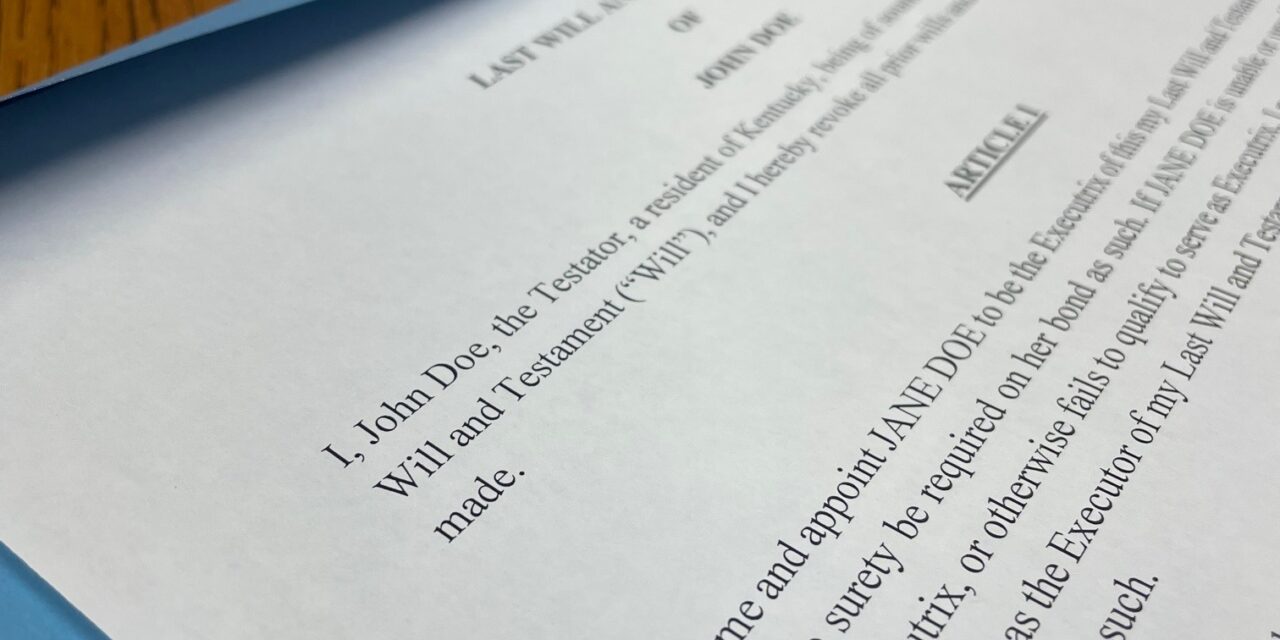Whether/when to update older estate documents is usually met with the lawyerly answer of “it depends.” A basic estate plan consists of (1) power(s) of attorney (“POA”), (2) living will directive, and (3) Last Will and Testament. These documents are all governed in Kentucky by statutes. This means Kentucky legislature has passed laws that control the creation, interpretation, and enforcement of these legal documents.
What Factors Should I Consider?
There are obvious factors such as major life changing events: divorce or marriage, birth of a child, death of a beneficiary. There are other, less obvious factors though such as when the documents were executed. For example, a Last Will and Testament signed before a divorce is affected by KRS 394.092 which nullifies any gifts to the ex-spouse by treating the ex as if they died before the Will is read. Many divorce attorneys advise clients to revise their Wills immediately after a divorce because the Kentucky statute does not explicitly invalidate the Will. The divorce nullifies the gifts to the ex-spouse. This is just enough of an opening to create potential litigation by an ex-spouse, so it’s best to shut that door. In fact, there is a misconception that divorce automatically invalidates an old Will and that is just not accurate.
What about POAs and living wills? The Kentucky Living Will Directive Act was first enacted in 1994, and has undergone changes since then (as recently as 2015). In July, 2018 Kentucky adopted the Uniform Power of Attorney Act (“UPAA”) which significantly changed the way we view POAs in Kentucky
Changes in the Legal Landscape
These statutory changes do not invalidate old POAs and living wills. Rather, statutory changes usually build on (and improve) previous laws. In the case of the UPAA though, it is a wholesale upgrade to Kentucky POAs. Prior to the UPAA, Kentucky POAs were largely a creation of “common law” (i.e., based on custom rather than statute) and there was little statutory guidance. Among the improvements, the UPAA provides for uniform terminology, and requires third parties to accept valid POAs … even if they are facsimiles or e-copies. These upgrades though, only apply to POAs signed after the adoption of the UPAA. These may seem like minor changes, but in an increasingly digital world the UPAA brings POAs into the 21st century.
It is best to periodically review estate planning documents when major life events or changes in the law occur. Unfortunately some of my probate clients find out too late that events that happened after their loved ones created an estate plans results in a different outcome than they intended.





